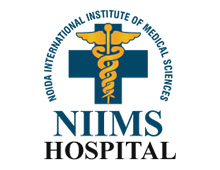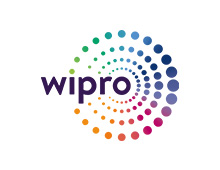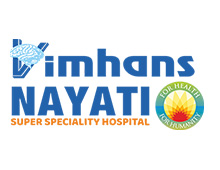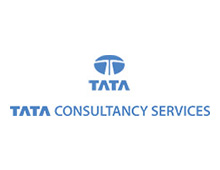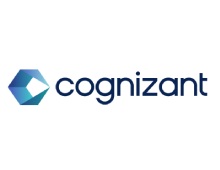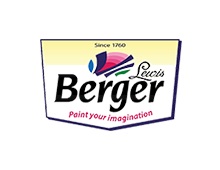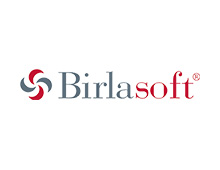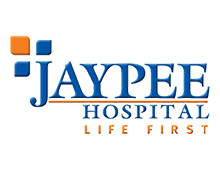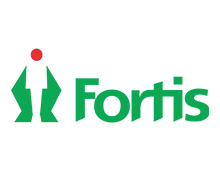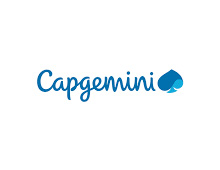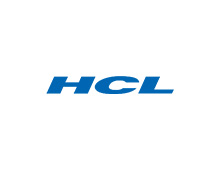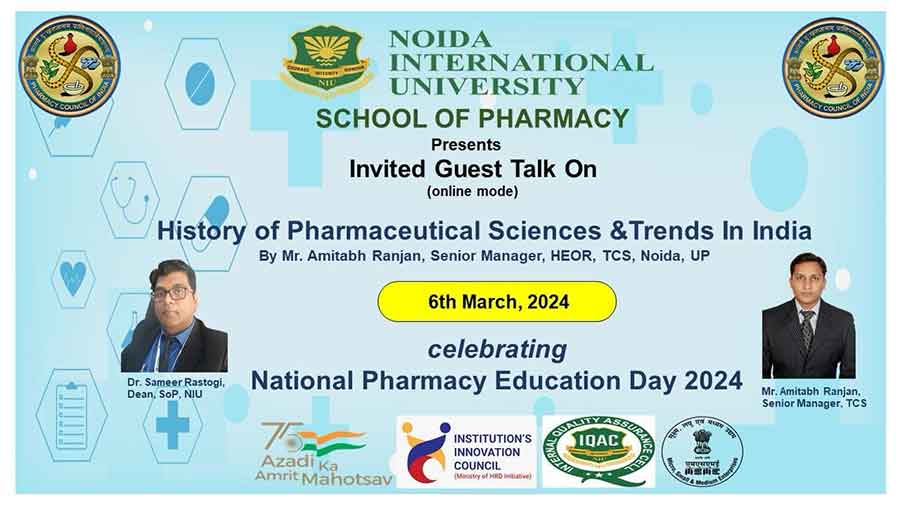


Introduction
Pharmacy is a subject that deals with the techniques of preparing and dispensing drugs. Pharmacy degrees teach students how different types of drugs affect the human body and mind and how they interact when mixed together. So, in order to successfully study Pharmacy, you’ll have to make Chemistry your friend.
Pharmacy studies will involve spending time in laboratories, researching, and learning about the chemistry used to develop medication. Some of the courses covered by this degree consist of: Pharmaceutics, Medicinal Chemistry, Pharmacognosy, and Pharmacy Practice.
Approved By
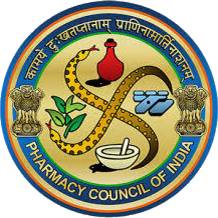
Students will learn about the fundamentals of pharmaceutical sciences. They will gain knowledge from related fields, such as Medicine, Chemistry, Biology, and even Ethics. During the final years of study, the approach will shift from theory towards practice. You will also have to do individual research projects and present your findings.
NIU School of Pharmacy offers Diploma and UG programmes in Pharmacy with dedicated and well qualified faculty members who give a complete insight from designing of a drug to creating new drug therapies. The classrooms are well lit and equipped with audio-video teaching aids for an effective teaching and learning process. The School of Pharmacy has state-of-the-art-laboratories that are supported by trained Lab technicians where students perform practicals under the supervision of experienced faculty members. To keep up with the Industrial expectations, it has collaborated with several reputed Organizations that are benefiting students via research projects, guest lecturers, as well as employability.
Dean's Message
Dear all Aspirants,
“Our goal is to change world through education”
First of all, I congratulate and welcome the budding Pharmacists in our College and their entry into the world of a prosperous career. Our aim is not only to produce pharmacy graduates but also to mould an ideal Pharmacy professional who can cater to the needs of society and the challenging Pharmacy profession. Our college is provided with state of the art facilities, young, dynamic, and meritorious faculty, well -furnished and equipped laboratories with modern instruments, an excellent library, and a computer lab with the latest configuration of computers with Internet facilities.
NIU School of Pharmacy is committed to rendering value based quality Pharmaceutical Education, following innovation in teaching and learning methods. Emphasis is given to personality development, by conducting soft skill training, career orientation programs, etc. Our faculties are qualified, passionate professionals who can understand the young minds. Students are encouraged to participate in conferences, workshops, and developmental programs. The advancement and globalization in the pharmaceutical sector have created a vast scope for qualified pharmacists in Pharma Industries, Academics, R&D, Marketing and Management, Hospitals, Clinical Research, Government agencies, etc.
“An investment in education pays best dividend.” I look forward to welcoming you to the School of
Pharmacy NIU family.
Our Events
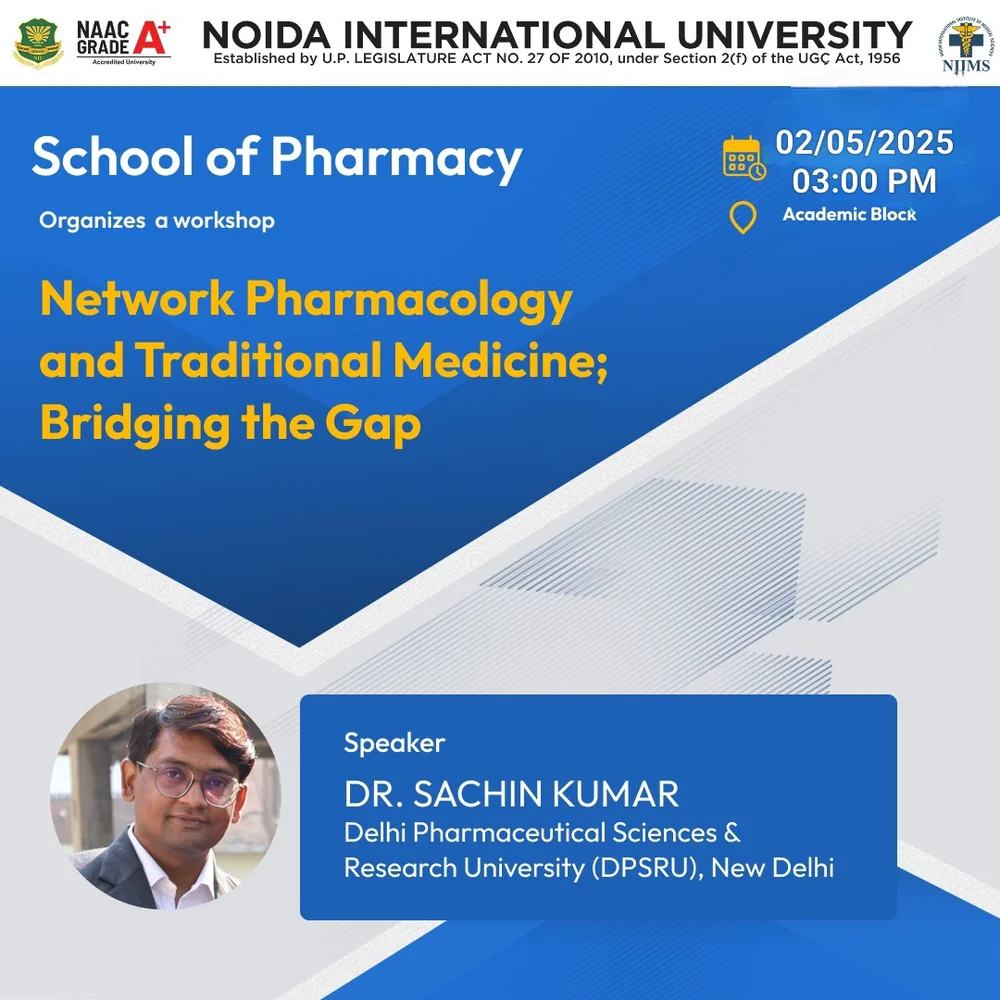




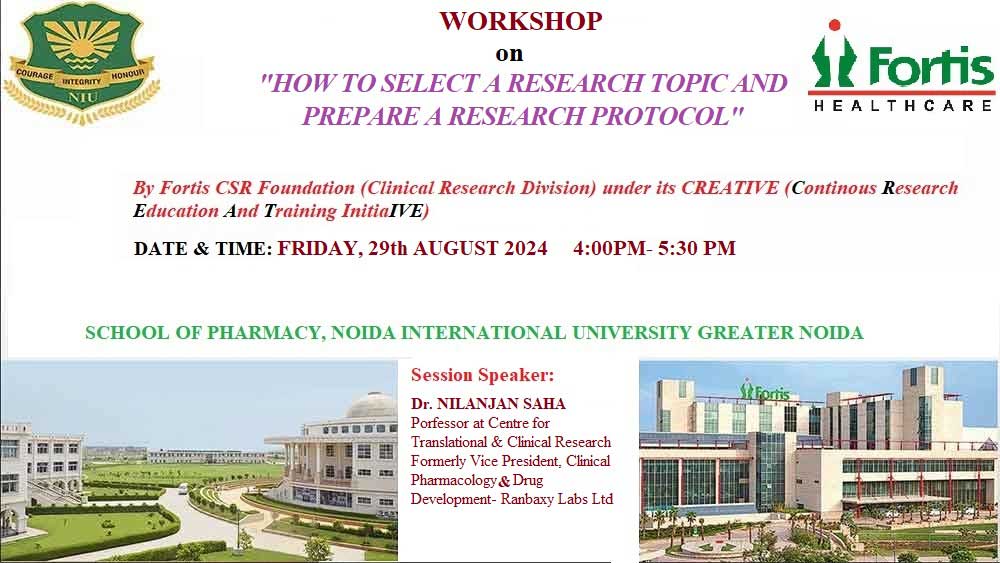

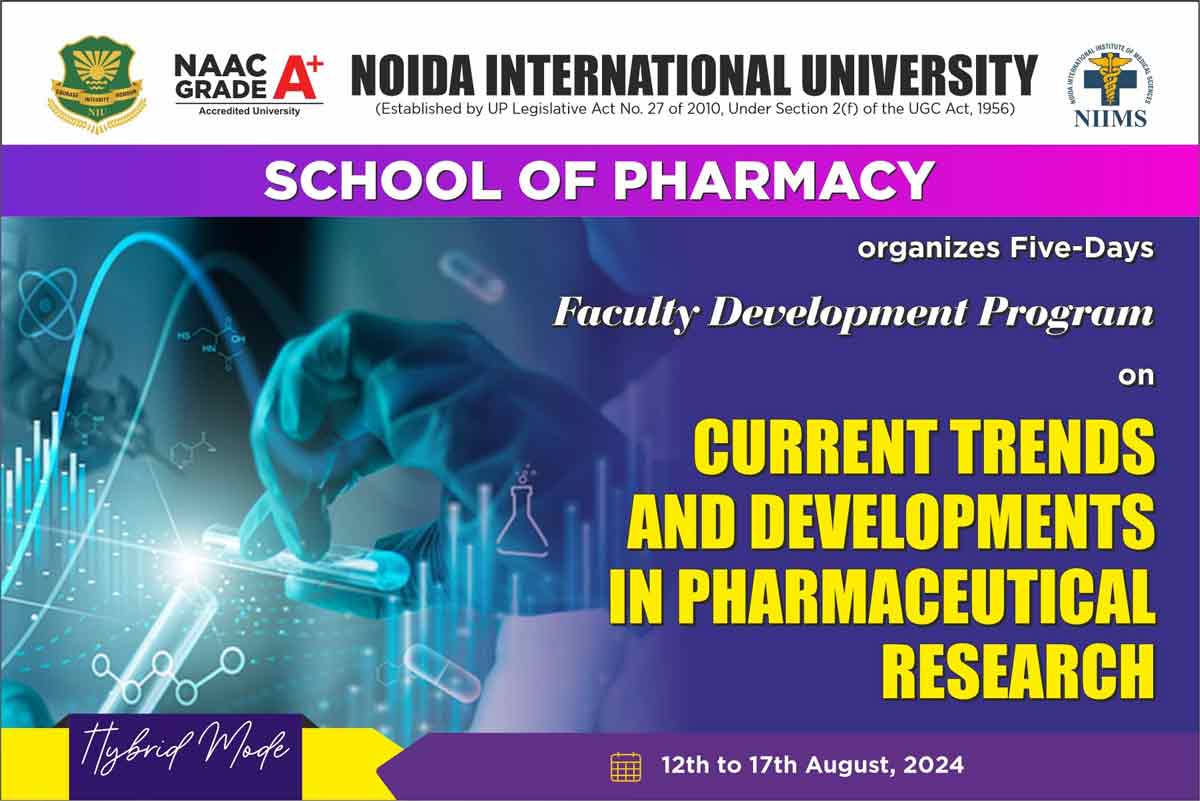

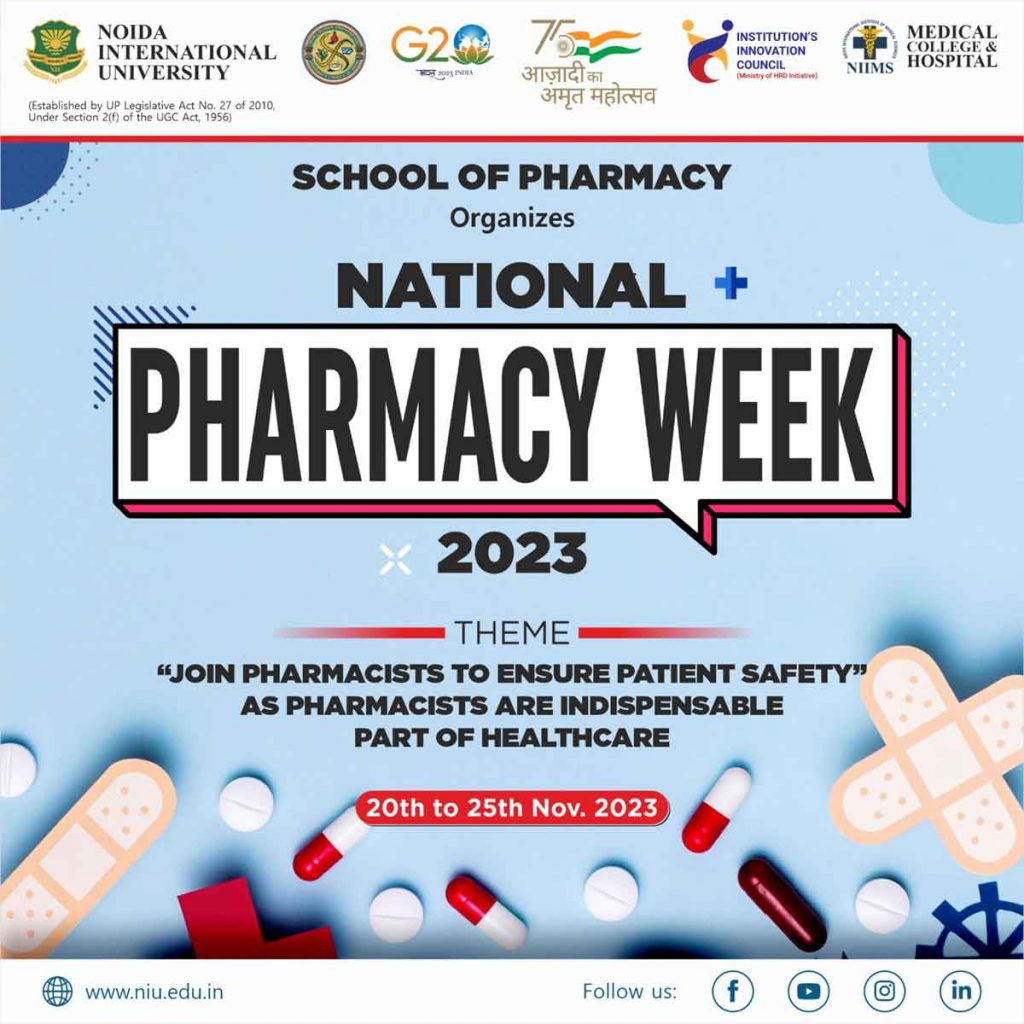




Details / Syllabus
Career Scope
A pharmacist's role does not end there. They conduct market research and keep track of all medicines and products by interacting with a medical practitioner and distributors for any adverse effects, reactions, allergies, and so on. Although medications are evaluated in labs before being distributed in a market, due to the complexity and diversity of human individuals, different outcomes from the same medicine might occur; consequently, a pharmacy practitioner must research and develop medicines and prescriptions at several levels. Pharmacy encompasses everything linked to your well-being, from the food you eat to the cosmetics, lifestyle products, health, and chemical items you use.
Looking at the scope of Pharmacy in the healthcare industry, according to a survey report called ‘Pharmacy at a Glance 2015-2017' by the International Pharmaceutical Federation (FIP), the pharmacy community is the largest contributor, with 75.1 percent of registered pharmacists employed, followed by hospital pharmacy with 13.2 percent. The services provided by pharmacy practitioners include:
Improving the use of medicines: Reviewing medicines, medicines for hypertension management, directly observed treatments, short course-based medicines, medication reconciliation, and new drug development.
Product-focused services: This includes compounding medicines (based on prescriptions by medical practitioners) and assembling expired medicines from a market.
Public health services: This includes promoting health initiatives, vaccinations, health camps, and other health -related awareness.
The World Health Organization (WHO) in India is aiming to strengthen the pharmaceutical sector, including drug regulations, volume, and trade, to facilitate the pharmaceuticals becoming crucial for India’s growth. The WHO in close association with the Government of India, controls the strengths and collaborations for improving the pharmaceutical sector.
For making the WHO 2030 Sustainable Development Agenda a success, access to medicines is a critical factor. Thus, WHO India’s key strategy is to strengthen the Regulatory system that can help access quality, safe, effective, and inexpensive medical products in an unbiased manner. Moreover, WHO India is also effectively working on establishing pharmacovigilance systems by integrating public health programmes, promoting rational drug use initiatives for medical products through the National Action Plan on Antimicrobial Resistance, as well as strengthening procurement and supply chain management.
Top Recruiters in Pharmacy
The top recruiters that employ the Pharmacy graduates are given in the table below.
Indian Recruiters | International Recruiters |
· Lupin · Cipla · Piramal · Sun Pharmaceuticals · Aurobindo Pharma · Dr, Reddy’s Laboratories · Serum Institute of India Ltd · Biocon | · Pfizer · AbbVie · GlaxoSmithKline · Johnson & Johnson · GlaxoSmithKline · Amgen · Merck |
Candidates can look at the job profile they can opt for after pursuing the Pharmacy courses.
Job Profiles | Annual Average Salary (in INR) * | Job Details |
Pharmacist | 2.2 lakh | A pharmacist is usually associated with healthcare centres, individual medical practitioners, hospitals, and every medical association. Their responsibilities include advising medical practitioners in the healthcare industry, i.e. doctors, nurses, and medical technicians, about drugs and their uses, dosage, as well as side effects. They also check for safety standards of new medicines developed, give advice on medicines with suitable diets, dosages, or prescription or no prescription drugs, as well as suggest the most appropriate form of medications such as tablets, vaccinations, drops, ointments, liquid syrups, inhalers, etc. The sales, marketing, and distribution of medicines are also managed by pharmacists. |
Pharmacologist | 4.8 lakh | A person holding a degree in Pharmacology specialisation works in the research and development of drugs for the Pharmacy Industry. A Pharmacologist study observes and alters the drugs developed as per the standards of Pharmacy Regulations. They majorly work in cardiovascular pharmacology, Neuropharmacology, psychopharmacology, Clinical Pharmacology, safety pharmacology, Toxicology, and more. |
Food and cosmetic products development scientist | 10.1 lakh | A pharmacy degree holder is not just restricted to preparing drugs; they are also involved in researching and developing products beyond medicines, such as cosmetics and food. Some people are allergic to a certain food, such as gluten allergy, lactose intolerance, etc., and on the consumption of such foods, they develop serious allergies; therefore, pharmacy scientists research to develop food free from these allergic elements. Similarly, they help develop harmless and non-allergic cosmetic products. For a scientist, a laboratory is a workplace; most of the time is invested in writing about research carried out by them along with the right instructions. All the how-to-use instructions, best before/expiry dates, ingredients, and any specific notes you find on medicines, cosmetics, and food products are scientists’ work. They send the guidelines/instructions after lab testing as per the standards set by the regulatory authorities to the manufacturing units. |
Clinical Trial Research Associate | 3.2 lakh | This role is relatively crucial because, as an associate in Clinical Trial Research, the collected data in research studies, interpret it, and document the research. Moreover, the CTR Associate is responsible for verifying the vaccinations, medicines, medical devices, and other clinical monitoring tools. They are involved in ensuring that protocols are followed and regulations are considered, as well as authenticating the CRT data and information. The CRT associates manage the clinical studies for diseases, diagnostics, and monitoring the clinical study labs, as well as risk management in clinical trials. |
Drug Inspector | 7 lakh | Drug inspectors, often known as quality control inspectors, are responsible for ensuring that medicines are safe for human consumption. The duties of a drug inspector include inspecting medicines at various phases of research and development, distribution, and selling to ensure that the requirements have been reached. |
*Disclaimer: The average salary mentioned is as per Industry trends. It may vary as per actuals.
FUTURE PROSPECTS AFTER D PHARMA
D Pharma certificate holders can immediately start working as pharmacists in India. Drug stores are everywhere, ranging from government hospitals to community health centres and private hospitals. They can also choose to open their own drugstore. If you have good aptitude and interpersonal skills and have a desire to help others, you can choose Pharmacy as your career. Pharmacists are vital for the primary health care system all around the world. The minimum requirement to become a registered pharmacist in India is a Diploma in pharmacy (D.Pharm).
- Safe and accurate processing of prescriptions.
- Dispensing and compounding of medicines.
- Accurate record-keeping is required under the Food and Drug Act.
- Purchasing, Merchandising, and Inventory Control.
- Third party billing.
- Drug approval processes.
- Narcotics control.
- Pharmaceutical Jurisprudence (laws regulating the profession of pharmacy).
- Regulatory requirements involving testing, screening, and clinical trials of drugs.
- Computer processing.
- Patient provider relationships.
There are many opportunities after completion of the D.Pharma course:
- You can get a job at drugstores or private or government hospitals.
- You can work in health clinics, NGOs, and community health centres by checking the prescriptions, dispensing medicines, and giving them advice and directions.
- You may get entry-level jobs in pharmaceutical companies at various divisions like Process Control, Manufacturing, and Quality Control.
- You can also work as Medical Representative.
- If you have entrepreneurial spirit, you can open your own retail pharmacy outlet, wholesale business, or surgical items shop.
To further enhance your chances of success, you can pursue further studies:
- If you have found your calling and passion in pharmaceutical studies, you can go for a bachelor's degree in pharmacy. In case you have already done D.Pharm, you can directly apply for 2nd year of B.Pharm. Thereafter, you can also pursue postgraduate degrees.
- Another interesting future for your career can be a degree in Law after D.Pharma. Many pharmaceutical companies hire Litigation and IPR (Intellectual property) lawyers.
FUTURE PROSPECTS AFTER B PHARMA
- Production and Manufacturing
- Formulation Development
- Quality Assurance and Quality Control
- Drug Regulatory Affairs
- Research and Development
- Academics
- Hospital Pharmacy
- Drug Inspectors
- Drug Controllers
- Pharmacist
- Lecturer for D.Pharm. Colleges
- Medical Representative
Following a B. Pharma, you can work in the following fields:
- Analytical Chemist
Chemists are experts who dispense medications that a doctor has recommended for any patient or someone who is ailing physically. In India, there are around 14 lakh chemists. Chemists are also responsible for prescribing medications to anyone without first contacting a doctor, for which they must meet the requirements.
- Food and Drug Inspector
Food and drug inspectors carry out inspections of facilities where foods, medications, and related consumer goods are produced, handled, stored, or sold to uphold the legal requirements for grade, purity, and sanitation.
- Hospital Drug Coordinator
The clinical coordinator manages and plans the daily operations of patient care facilities, including hospitals, clinics, and other healthcare settings. He oversees the hospital staff’s daily activities as well. His primary responsibilities include working with various departments, guaranteeing proper patient care, supervising employees, helping specific patients in designated units, and attending regular meetings.
- Drug Therapist
Drug therapists, commonly referred to as substance abuse counsellors, assist those who abuse or depend on legal or illicit drugs. Before considering whether being a drug therapist is the right career for you, it is wise to weigh the benefit s and drawbacks of the position.
- Chemical Technician
To ensure that goods adhere to norms and specifications, chemical processes must be monitored and product quality tested. Set up and care for the tools and equipment used in laboratories. Investigate instrument malfunctions or production issues. Get your chemical solutions ready.
- Drug Technician
Reads medicine orders and prescriptions, prepare labels, calculates quantities, and assembles intravenous solutions and other pharmacological therapy before organizing medications for the pharmacist to distribute. Keeps data current by logging and organizing doctor’s orders and medicines.
- Drug Inspector
The drug inspector’s role begins when a drug is authorized for general public sale. They need to make sure that medications are produced correctly and packaged securely. They are in charge of the product’s and its packaging’s quality. They must also perform routine inspections to ensure the manufacturing process’s efficacy and the medicine’s quality. Medication inspectors are employed by drug production facilities and have a crucial role to play.
- Health Inspector
A health inspector’s primary duty is to verify that all public spaces, including hospitals, schools, restaurants, and hotels, maintain the same sanitary standards. In India, a sanitary inspector’s responsibilities include ensuring that a public space operates in a hygienic atmosphere.
- Pharmacist
In addition to dispensing medications, pharmacists advise on how to use them properly and lead healthier lives. Additionally, pharmacists do health exams, immunize patients against infections, and track how much medication each patient takes daily.
- Research Officer
Often known as a research officer, a researcher manages research programs to achieve particular goals. They are responsible for determining the organization’s budgets, developing procedures, and identifying research goals.
- Pathological Lab Scientist
Technicians at medical and pathology laboratories conduct clinical tests on samples of biological fluids and tissues to learn more about a patient’s condition or the reason for death.
- Research & Development Executive
Today’s medications and vaccinations result from research and development (R&D). One of the most crucial positions in the pharmaceutical sector is that of the R&D scientist. Research and development (R&D) scientists are expected to thoroughly understand chemistry and biology, conduct animal and human trials, write reports on medical findings, evaluate existing medications, and develop better formulations. These are just a few of the main expectations of R&D scientists.
- Making Prescriptions to Patients
A pharmacist prepares drugs for use or delivery and ensures that patients receive all of their prescribed medication. They then disperse them as needed to meet the needs of each person.
- Medical Writer
Medical writers translate drug trials, scientific research, and clinical data for use in regulatory presentations, medical journal abstracts, and distribution to a professional audience.
- Clinical Researcher
Coordinating the trial’s execution with medical professionals, consultants, or investigators. Establishing the trial sites entails ensuring each facility has the trial supplies, including the trial medicine, also known as the investigational medicinal product.
- Medical Representative
Pharmaceutical corporations employ medical representatives (MRs), who meet with doctors to inform them of the new medications the company has introduced to the market. They resemble marketing managers for the company’s goods. Because MRs are in charge of generating sales of produced pharmaceuticals, this is a crucial position. They must be well knowledgeable about every drug that their company manufactures.
Duration: 4 years full time Degree course in pharmacy.
Approved intake: 60
Qualification for admission in 1" year : 10+2 with PCM/PCB Subjects minimum 50% marks from a recongnized education board or through counseling from UniversityRANCE TEST NIU Uttar Pradesh,
- 10+2 with PCM/PCB subjects
- Minium 50% marks 3 subjects (PCM/PCB) from a recognized education board & 40% for SC/ST or through UPSEE.
Qualification for admission in 2" year (Lateral Entry): D.Pharm with minium aggregate of 45% for general & OBC and 40% for SC/ST
FUTURE PROSPECTS
- production and manufacturing
- Formulation development
- Quality assurance and Quality control
- Drug regulatory affairs
- Research and development
- Academics
- Hospital pharmacy
- Drug Inspectors
- Drug Controllers
- Pharmacist
- Lecturer for D.Pharm Colleges
- Medical representative
- Marketing Managers or a Sales Manager
Pharmacy is a branch of science which deals with the study of discovering, producing, preparing, dispensing, and reviewing drugs, aiming to ensure the safe, effective, and affordable use of drugs. Those who have completed their course of study in this field are known as pharmacists. There are many types of pharmacy like Community Pharmacy, Hospital Pharmacy, Clinical Pharmacy, Industrial Pharmacy, Compounding Pharmacy, Consulting Pharmacy, Ambulatory Care Pharmacy, Regulatory Pharmacy, Homecare Pharmacy, and so on. Pharmacy technicians support the work of pharmacists and other health professionals by performing a variety of pharmacy-related functions, including dispensing prescription drugs and other medical devices to patients and instructing on their use.
Duration: 2 Year full time Dipoma course in Pharmacy
Approved intake : 60
Qualification: 10+2 with PCM/PCB Subjects minimum 50% marks from a recongnized education board or through counseling from UNIVERSITY ENTRANCE TEST NIU.
FUTURE PROSPECTS
D Pharm certificate holders can immediately start working as pharmacists in India. Drug stores are everywhere ranging from government hospitals, community health centers and private hospitals. They can also choose to open their own drug store. If you have good aptitude and interpersonal skills and have a desire to help others you can choose Pharmacy as your career. Pharmacists are vital for the primary health care system all around the world. The minimum requirement to become a registered pharmacist in India is Diploma in pharmacy (D.Pharm).
- Safe and accurate processing of prescriptions.
- Dispensing and compounding of medicines.
- Accurate record keeping as required under Food and Drug Act.
- Purchasing, Merchandising and Inventory control.
- Third party billing.
- Drug approval processes.
- Narcotics control.
- Pharmaceutical Jurisprudence (laws regulating the profession of pharmacy).
- Regulatory requirements involving testing, screening and clinical trials of drugs.
- Computer processing.
- Patient provider relationships.
There are many opportunities after completion of D.Pharma course:
- You can get job at drug stores of private or government hospitals.
- You can work in health clinics, NGOs, community health centres by checking the prescriptions, dispensing medicines and give them advice and directions.
- You may get entry level jobs in pharmaceutical companies at various divisions like Process Control, Manufacturing and Quality Control.
- You can also work as Medical Representative.
- If you have entrepreneurial spirit, you can open your own retail pharmacy outlet, wholesale business or surgical items shop.
To further enhance your chances of success you can pursue further studies:
- If you have found your calling and passion in pharmaceutical studies, you can go for bachelor’s degree in pharmacy. In case you have already done D.Pharm you can directly apply for 2nd year of B.Pharm Thereafter, you can also pursue postgraduate degrees.
- Another interesting future for your career can be degree in Law after D.Pharma Many pharmaceutical companies hire Litigation and IPR (Intellectual property) lawyers.
Programmes Offered
| PROGRAM | COURSE | ELIGIBILITY | DURATION | IST YEAR FEE | IIND YEAR FEE | IIIRD YEAR FEE | IVTH YEAR FEE | VTH YEAR FEE | FULL COURSE FEE | Enquire Now |
| B.Pharma | Bachelor of Pharmacy | 10+2 with PCM/PCB Subjects minimum 50% marks from a recongnized education board or through counseling from UNIVERSITY ENTRANCE TEST NIU. | 4 | 170800 | 178000 | 185400 | 193300 | N/A | 727500 | Enquire Now |
| D.Pharma | Diploma in Pharmacy | 10+2 with PCM/PCB Subjects minimum 50% marks from a recongnized education board or through counseling from UNIVERSITY ENTRANCE TEST NIU. | 2 | 124000 | 128800 | N/A | N/A | N/A | 252800 | Enquire Now |
- INR 10,000 one-time refundable security fee.
- Scholarships are applicable only to tuition fees for the first year.
- An additional INR 2,500 to be paid in the end semester for the award of degree
- DEAN'S PROFILE
- FACULTY PROFILE
Dr. Sameer Kumar
Dean of Pharmacy
Raju Kumar Singh
Dr. Neha Rana
Ms. Priti Tiwari
Ms. Anjali
Ms. Nidhi Srivastava

NIU is one of the best international university in Delhi Ncr. I am a fourth semester BA Student. Till now my experience with NIU is very good. All the faculty members are very helpful. Education system is also very good. I am very happy to be a part of this university.
Turkmenistan

NIU is one of the best university in India. All the teachers and friends are very helpful. Education system is also very interesting.I am very happy for being a part of this university
YEMEN

" Noida International University has given me an astonishing platform for the overall growth and development. Every faculty member of MBA department continuously provided assistance to grow in academics and my skills. NIU Placement is working hard for all students to get placed. "
Tejesh Kumar
PinClick

Noida International University has provided us a very efficient platform for the exposure to the training and placement. I am very grateful to the university for providing us the best of placement opportunities and finally I got placed in HDFC and taken the first step to fulfilled my dreams.
Divesh Ranjan

I was pleasantly surprised by the beautiful campus and the quality of facilities that Noida International University provides. Eventually the excellent pedagogy of the teachers and the amazing help I received to enhance my skill and improve my knowledge convinced me of the Excellency of Noida International University.
ISHITA TYAGI
PROVOGUE

Noida International University has always believed in helping and guiding its students and it was no different during the placement season. Regular classes held at our college to help us with our legal studies and skills were of great help. Our placement administration officers also guided and encouraged us at each step thereby helping me secure my placement at such a reputed company.
Monika Nahata
SALTEE GROUP

I would like to thank our faculty members who have provided a very supportive environment. NIU undertakes and promotes various managerial, cultural, creative and many other diversified activities, which reflects the grand vision of the NIU and all such activities, helped in my overall development. I also like to thank our placement division who had provided us ample of opportunities and finally got me placed with Capital Brix
SIMRAN SINGH
Capital Brix Pvt. Ltd.

Noida International University has been a great contributor towards the development of my personality. The infrastructure of Noida International University is one of the finest in the NCR region is what stands out the most. NIU, has best faculties with an attitude of being ever ready to help, and not only delivering classroom teachings, but also providing the students with real-time case technical projects and hands on industry experience with field work.
Shruti Priyaq
Acadecraft Pvt. Ltd.

It been some of the lovely and memorable days I spent in Noida International University. NIU & its wonderful faculties are very cooperative and university environment is really good. Placement department has continuously provided assistance and gives opportunities in some of the best organizations in our country. NIU has made the best efforts to provide all the facilities for the students like Faculties, events, sports, etc.
Priyanka Singh
SSSI

I'm so thankful that I chose Noida International University for my B.Tech program. I cherish the moments spent under the guidance of eminent faculty members, my mentors and Career Development Team. I highly recommend the University for giving an excellent learning environment and shaping my career.
KRISHNA PANDEY
Ingenious Energy Infratech Pvt. Ltd.

I am doing MA from NIU and I like the university and I am very happy to be a part of this university. This is one of the best university in Delhi (NCR). I select this university for the best environment and good library and also the behavior of teachers and friends are also very good. I am not feeling like outside to my country. The study quality is also very best
AFGHANISTAN

It was my golden phase during my tenure at Noida International University where I learnt and take a leap forward towards my career growth. The entire faculty and department leaves no stone unturned to shape one's future. It’s been a wonderful experience of learning with prolific exposure to outside. A big thanks to the Placement Team of Noida International University for providing great opportunities and supporting me by providing best career option.
Nadeem Alvi
Paytm Services Pvt. Ltd.
